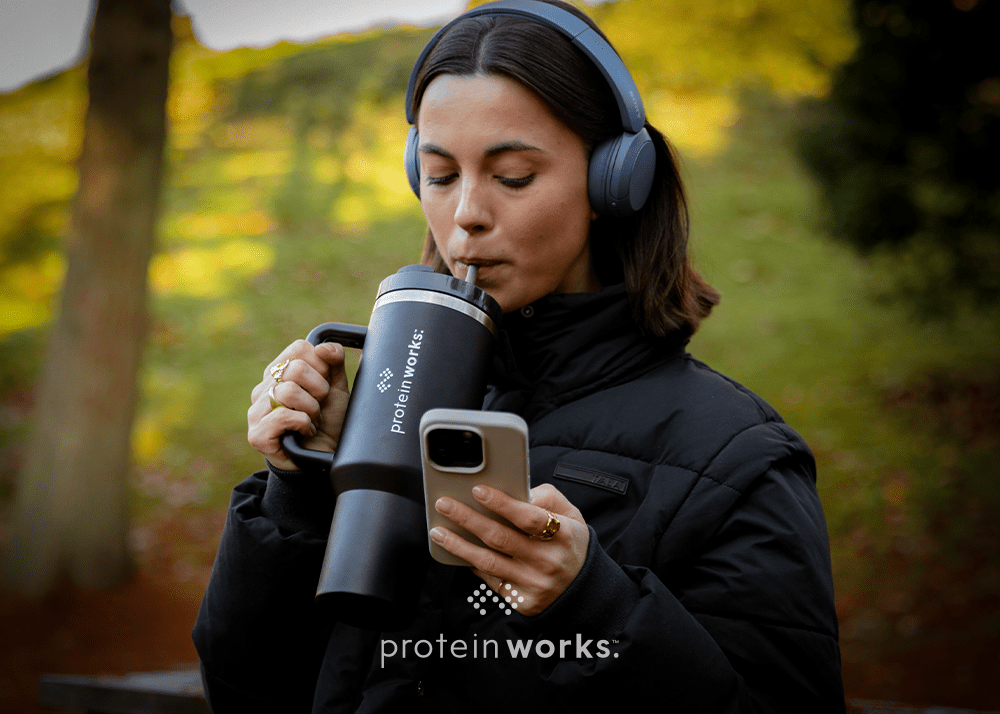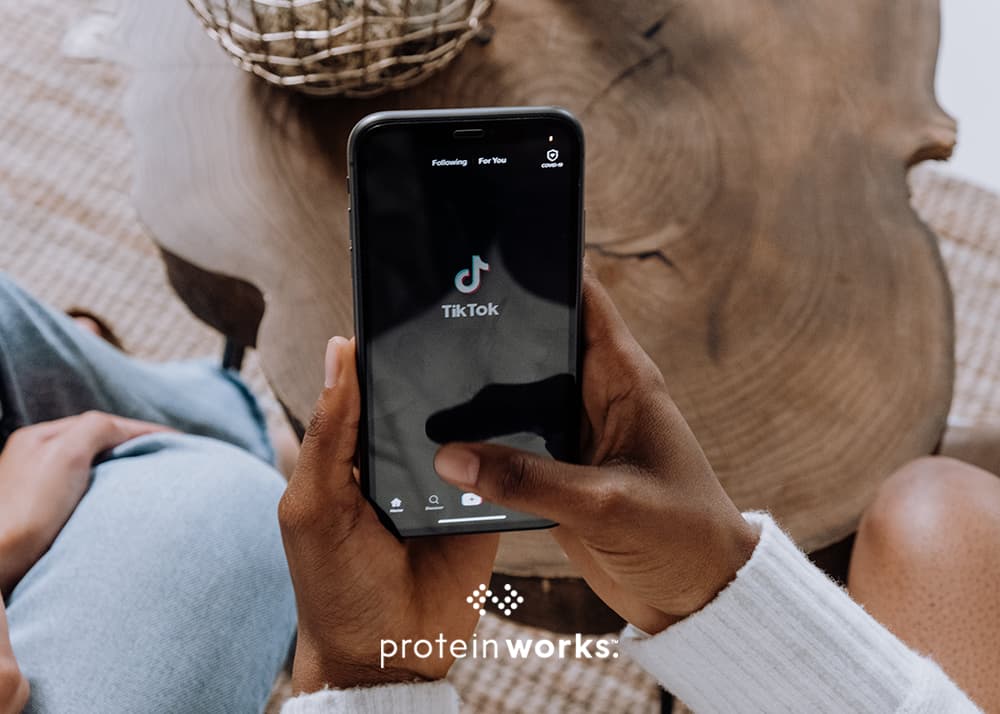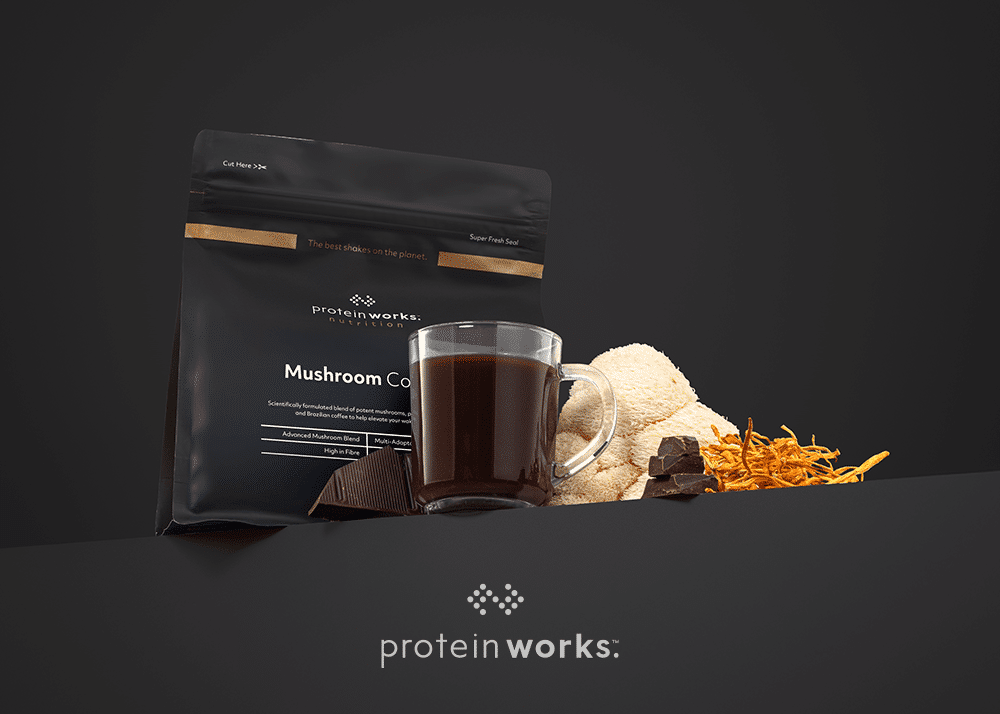
How Much Water Should I Drink a Day?
It’s no secret that water is a vital part of our health. Drinking more is top of the list for any health advice, and we’ve all fallen victim to buying huge water bottles with the hopes of upping our daily quota. But how much water should you drink a day?
We’re here to set the record straight, letting you know exactly how much water you should be drinking, what kind of water you should focus on, and whether there are any hydration hacks that could work better than good old H2O.
 Why is hydration important?
Why is hydration important?
Our bodies are mostly water, making up 50-70% of our overall weight. We depend on it to survive, using it for digestion, circulation, temperature regulation, joint health and more. When we’re sufficiently hydrated, we feel the effects: clearer skin, better energy and improved focus to name a few. When you’re not hydrated enough, your body will struggle to do these basic functions, and you’ll experience dehydration. Even just mild dehydration will leave you feeling tired, giving you headaches and making it difficult to concentrate, so it’s important that you make a conscious effort to get enough water in.
What causes dehydration?
There are various causes of dehydration, the most obvious being not drinking enough water throughout the day. And it can happen even if you don’t feel thirsty – in fact, thirst is a late sign that you’re already behind on your liquid quota. This isn’t the only thing to consider, though. If you’re in a situation where you’re sweating more than usual, such as in exercise, hot weather, or saunas, you’ll need to replenish what you’ve lost faster than normal.
Additionally, if you drink caffeine or alcohol, you may experience diuretic effects increasing fluid loss, so it’s important to be drinking plenty of water alongside them (this will also help to fight hangovers, as the symptoms here are mainly down to dehydration). Some medications also have diuretic effects, and high-salt diets pull more water from your cells, leading to dehydration.
A lack of fluid isn’t always your fault, though. Certain illnesses like vomiting, diarrhoea, or fevers can cause rapid water loss, which is out of your control. When this happens, it’s just important to try and get as much fluid in as you can when you’re recovering, bringing your body back to its happy equilibrium.
But how much water exactly will help you reach this balance?
How much water do you need per day?
You might have heard of the guidance to drink 8 glasses of water a day, and this isn’t far wrong. The NHS guidance is to simply drink enough that your urine is a clear, pale yellow colour, and this could mean different things for different people. In general, though, 6-8 glasses a day should do this fairly well.
If you’re pregnant or breastfeeding, in a hot environment, physically active for long periods of time, ill, or recovering from an illness, you may need to drink more fluids.
Can you drink too much water?
While 6-8 glasses is the guidance, this is not a one-size-fits-all rule. However, there is the possibility of drinking too much water (though it’s very rare). Excessive water consumption in a short amount of time can cause hyponatremia, where the levels of sodium in your blood become too diluted – but don’t worry, you’d have to be going quite far out of your way to drink enough water to cause this. Just stick to a sensible 6-8 glasses, and you’ll be perfectly hydrated.
Is there a best type of water to drink?
So you’re dedicated to avoiding dehydration. But is one form of water better than the other? While they’re not all made equal, there are some factors with certain types that could affect your hydration levels:
Still vs sparkling water
If you go crazy for carbonation, good news: sparkling water is just as hydrating as still water. The only thing to consider is the fact that bubbles could make you feel fuller, faster, causing you to want to drink less of it overall.
Hot vs cold water
Again, water is water, so the temperature of it doesn’t inherently affect its hydrating effectiveness. In this case, it’s more about your personal preference. Need a cold hit of refreshment in hot weather? Opt for cold. Want to help aid your digestion in the morning or after meals? Warm water has been shown to do that.
Tap vs bottled water
Here in the UK, tap water is very safe to drink. There are strict regulations and testing done on it, ensuring its quality. It even has some added minerals, which are beneficial to our health. Bottled water is arguably more ‘pure’, but the testing standards for it are far less stringent, while also causing plastic waste (and costing more).
What else can hydrate you?
You can hydrate through more than just drinking water. Some methods are great to simply get more H20 in without having to drink more water, and there are other methods of hydrating beyond just water. There are smarter ways to hydrate.
Electrolyte drinks
Found as pre-mixed drinks, dissolvable tablets or powders, electrolytes are a great way to rehydrate during or after intense exercise, or as part of a healthy lifestyle, especially during hot weather. They contain added sodium, potassium and other minerals which help to retain fluids.
Coconut water
Coconut water is a natural source of electrolytes. Because of this, it’s a great option for a light boost in hydration – alongside the vitamins and minerals it provides too.
Water-rich foods
Drinking liquid isn’t the only way you can reach your hydration goals. There are various foods that have a high water content, giving you a little hit of H2O without having to take a sip of anything. Fruits like watermelon, cucumbers, oranges, and strawberries are all high in water, and some soups or broths can also contribute to hydration. Just make sure this is in addition to drinking water, not a replacement for it.
Tea or coffee
Great news: your daily tea and coffee rituals are helping you towards hydration. Since they’re made with water, a cup of tea or coffee counts towards your daily fluid intake. The caffeine in them has a mild diuretic effect, but not enough to significantly impact your hydration levels. If you’re concerned about this, though, decaffeinated tea is considered just as hydrating as a glass of plain water.
Genesis Advanced Hydration
Fortunately, here at Protein Works we’ve created our very own hydration drink to make things even easier for you. Genesis Advanced Hydration provides next-level hydration by delivering a quad-electrolyte blend (Sodium, Potassium, Magnesium, Calcium) that helps the body absorb fluids properly, keeping you refreshed, focused, and energised all day. Infused with B Vitamins (B5, B6, B12) for mental clarity and energy, plus coconut water extract for natural mineral replenishment, it’s the perfect sugar-free, low-calorie alternative to artificial sports drinks. Whether you’re at the office, gym, or just on the go, Genesis makes hydration simple, effective, and delicious with bold, refreshing flavours like Summer Orange and Berry Burst!
Hydration and weight loss
If you’re watching your weight, drinking more water won’t just help you towards your hydration goals: it can also impact your weight loss journey. Drinking water before meals may help to reduce your calorie intake, and it also helps to stop you mistaking thirst for hunger. Staying sufficiently hydrated really is a win, win.
How do you know if you’re properly hydrated?
If you’re not noticing any symptoms of dehydration, then congratulations: you’re probably getting enough water. However, if you’re not sure, checking the colour of your urine is a great litmus test. If it’s light yellow, you’re all good. If it’s darker, you’re probably dehydrated. As we mentioned before, feeling thirsty means you’re probably already a little dehydrated, and any fatigue or brain fog could also be put down to a lack of fluid in your body. Drink a little more and see if anything changes – chances are you’ll feel better in no time.
Good hydration is essential for our bodies to work the best they can, so practising mindful hydration every day is important. Whether you set yourself a daily goal or just constantly carry around a water bottle as a reminder, make sure you listen to your body’s signals to give it as much fluid as it needs. It’ll thank you for it.
References
Water, drinks and hydration | NHS
Water: how much should you drink every day? | Mayo Clinic
Drinking water and your health | HealthDirect
How much water should you drink? | Harvard Health Publishing






